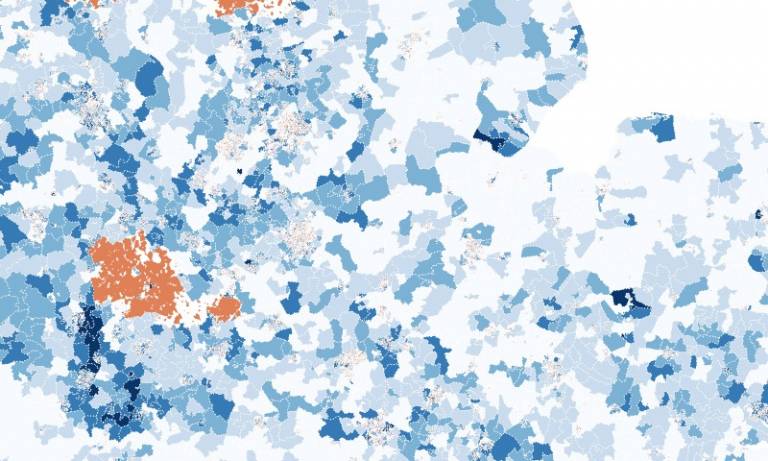10 Jan 2018 | 5pm | Cities are Transformative for Health: An Urban Health Explainer | Dan Lewis
10 January 2018, 5:00 pm–6:00 pm

Daniel Lewis will deliver the first CASA Seminar of 2018 on 10th January, titled 'Cities are Transformative for Health: An Urban Health Explainer.'
Event Information
Open to
- All
Availability
- Yes
Organiser
-
Dr Duncan Smith
Location
-
26 Bedford Way room LG04.
Cities are Transformative for Health: An Urban Health Explainer - Daniel Lewis
Cities concentrate opportunities, jobs and services, culture and experience, and can be health promoting, or ‘salutogenic’ places. However, cities can also be ‘pathogenic’, or disease causing. Risks to health are embedded in the urban systems that make up cities: housing; transportation; green, blue and civic space; food and alcohol; crime and safety, and so on. However, these risks are not evenly distributed between and within cities, or among population groups, producing disparities and inequalities in health, in health behaviours (like diet or physical activity) and in perceptions of the supportiveness of the urban environment for health. Designing or redesigning cities so that they are more supportive of, or less damaging to, the health of urban populations is a major public health challenge. However, establishing healthy cities will require expertise from many fields, and will hinge on an understanding of how cities function as complex, interdependent, dynamic and adaptive systems. This talk will describe and define ‘urban health’, provide some context for the study of cities and health, and speculate on the opportunity for urban science to offer a better understanding of the health of urban populations.
Daniel Lewis is a Research Fellow at LSHTM. Recently he has worked on the Olympic Regeneration in East London (ORiEL) project, a major National Institute for Health Research (NIHR) funded project that aims to evaluate the impact of the London 2012 Olympic and Paralymic legacy on young people and their families in East London, creating objective measures of individual environmental exposure, taking in a range of factors from access to parks and green spaces, via density of fast-food outlets, to characterising urban built form. Daniel also has gained funding (British Academy/Leverhulme) to conduct a pilot study using VERITAS a novel online web-mapping tool that enables people to describe their neighbourhood and relevant environmental features. The work is connected to ORiEL, and will hopefully provide us with richer information about individual exposures to environment, and might lead to the implementation of such data collection methodologies in large cohorts in the future.
This is a free event, and open to all across UCL and the wider world. The seminar will take place at 26 Bedford Way room LG04. The Bedford Way building is positioned near to the UCL main campus (seewww.ucl.ac.uk/maps/26-bedford-way for further information), room LG04 is on the lower ground floor down the stairs from the building's main entrance.
 Close
Close

